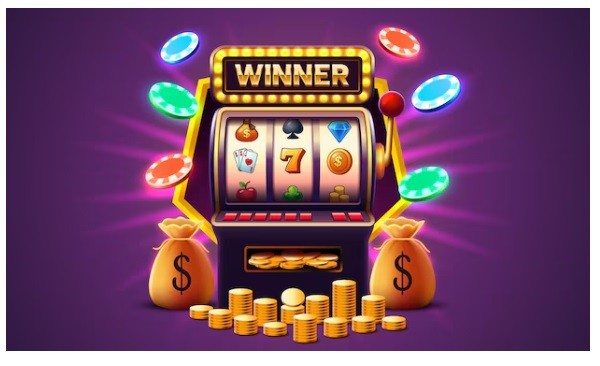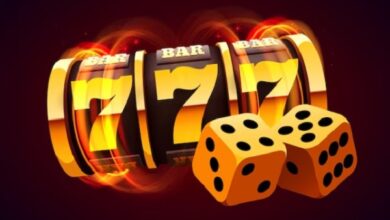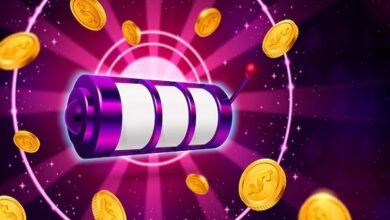Why Are Online Slots So Addictive? A Psychological Breakdown

Online slots have taken the world by storm, becoming one of the most popular forms of online entertainment. While the flashing lights, exciting themes, and potential for big wins are undeniable draws, many players find themselves coming back for more, sometimes even beyond what they initially intended. But what makes these games so addictive? In this article, we’ll break down the psychology behind online slots and explore why they can be so irresistible.
The Thrill of the Spin: Instant Gratification and Reward
One of the primary reasons online slots are so addictive is the instant gratification they offer. When you hit the spin button, there’s an immediate payoff — whether it’s a win or the anticipation of what’s to come. This immediate feedback loop keeps players engaged because it taps into our brain’s reward system. Every time you spin, your brain releases dopamine, the “feel-good” chemical associated with pleasure and satisfaction.
The fast pace of dewa1000 online slots also contributes to this feeling of instant gratification. Unlike other casino games that might require more skill or strategy, slots are simple and easy to play. The simplicity of the game allows players to focus purely on the thrill of the spin, creating a continuous cycle of anticipation and reward.
The Role of Randomness: The Illusion of Control
Another significant psychological factor is the randomness built into online slots. The outcome of each spin is determined by a Random Number Generator (RNG), meaning there’s no way to predict the result. Yet, this randomness is often misinterpreted by players, who believe that they can influence the outcome in some way, creating the illusion of control.
This feeling of control — even though it’s based on a fallacy — plays a huge role in making online slots addictive. Players might think that if they just tweak their betting strategy or play for longer, they will hit a big win. This illusion is reinforced by the way the wins are often structured: smaller wins might come frequently, keeping players hopeful for a larger payout in the future.
The Near Miss Effect: Why Losing Feels Like Winning
Have you ever had a near-miss in a slot game — where you were just one symbol away from hitting a jackpot? This can be one of the most psychologically addictive aspects of online slots. According to research, near-miss scenarios are highly rewarding for the brain, often leading to a higher likelihood of continuing to play.
Even though you didn’t win, the feeling of being close to a big payout triggers the same dopamine response as an actual win. This creates an emotional rollercoaster for players, making them want to keep playing for the possibility of that elusive win. It’s this loop of near-misses that keeps players coming back for more.
Visual and Auditory Cues: Designed to Keep You Hooked
The design of online slots is another factor that makes them so addictive. These games are packed with visual and auditory cues that are designed to keep you engaged. Flashing lights, spinning reels, and exciting sound effects all create a sensory experience that mimics the thrill of being in a real casino.
The inclusion of themes and storylines also helps immerse players in the game. Whether you’re diving into a pirate adventure or playing in a futuristic world, these themes make the experience more captivating. Sensory stimulation triggers emotional responses, reinforcing the desire to keep playing.
Variable Reinforcement: The Power of the Unpredictable Reward
One of the most potent psychological mechanisms behind the addiction to online slots is variable reinforcement. This is the same principle that’s used in other addictive behaviors, such as gambling, social media scrolling, or even slot machines in physical casinos.
In variable reinforcement, rewards are given out at unpredictable intervals, meaning you never know when a big win might come. This unpredictability keeps players engaged, as they are constantly wondering if the next spin will be the one that hits the jackpot. Because of the irregular nature of these rewards, it’s easy to get hooked on the uncertainty of when the next win will come.
The Impact of Social Influence: Sharing Wins and Losses
Social influence can also play a role in making online slots addictive. Many online casinos allow players to share their progress, wins, and losses on social media or leaderboards. Seeing friends or fellow players hit big wins can create a sense of competition or FOMO (fear of missing out), pushing you to play more in hopes of achieving similar results.
Moreover, social casinos allow players to interact with others in a virtual setting, creating a community atmosphere that further encourages engagement with the game. This social aspect adds another layer of psychological reinforcement, making the experience more immersive and enjoyable.
Conclusion: Understanding the Psychology of Online Slots
In conclusion, online slots are addictive for a variety of psychological reasons, from the instant gratification and the illusion of control to the excitement of near-misses and the unpredictable nature of the rewards. The sensory stimulation, combined with social factors, creates an experience that’s hard to resist. Understanding these psychological triggers can help players make more informed decisions and recognize the signs of addiction. If you ever feel like you’re losing control or spending more time and money than you’d like, it’s important to take a step back and reassess your relationship with online slots.



